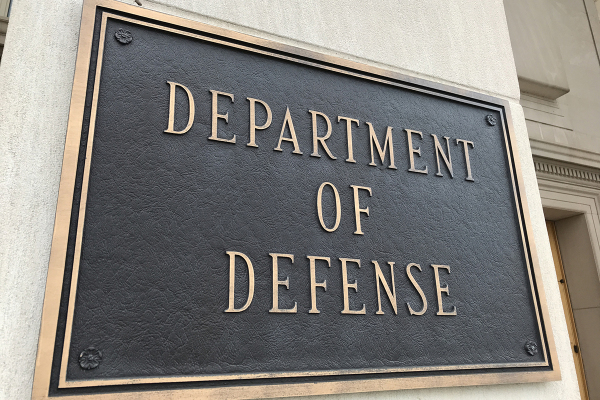Can Man Be Moral Without Jesus?

Man was created in the image of God. And so by nature, man is a moral being. Unfortunately for man, sin is also part of his existence, and sinful desires lead man to disobey God's commands. At the same time, billions of people who don't know Jesus live according to their favorite moral code.
We all have favorites, even in the realm of morality. We make choices based on our perceptions, our beliefs, and the cultural norms of our society. Mulitudes of people who do not profess faith in Christ are nevertheless seeking to live moral lives in whatever way they perceive to best fit their worldview and their approach to ethics.
So can man be moral without Jesus? Of course. Morality merely involves living according to a particular system of values and principles of conduct. For example, many people in the world do not engage in theft because it is unjust. It unfairly takes advantage of others, and it also tends to go against man's conscience.
Man's conscience is part of our Creator's design for human beings. And when someone goes against their conscience, it can result in a violation of God's law and perhaps even man's law. It is important to know that your conscience can be seared by continually going against it. In that situation, your conscience essentially becomes your personal defense attorney. On the other hand, your conscience by nature serves as the prosecuting attorney if you are quick to respond appropriately when it presents a case against you.
The apostle Paul explained how this happens to those who become "a law for themselves...their consciences also bearing witness, and their thoughts now accusing, now even defending them." (Romans 2:14,15)
And so unbelievers, like believers, all have a conscience and are accountable to God's law. This is true regardless of whether or not a person acknowledges God and His Word. If you break the law by speeding when traveling down the highway, you may be pulled over by a state trooper. Even if you were unaware of the speed limit in that area, it doesn't change the fact that you broke the law and you may be held accountable.
When it comes to God's highway, everyone in the world is accountable to God's Law. You may say, "But I don't believe in God." Well, whether you "believe in" state troopers or not, they are going to hold you accountable to their laws when you enter their jurisdiction. Likewise, you entered God's jurisdiction when you came into His world, and God always abides by His Word. "It is impossible for God to lie," (Heb. 6:18) and it is impossible for God to "lower the bar" or ignore His standard of perfection.
As God looks down from heaven upon man, He sees plenty of moral acts being carried out by people all over the world for a variety of reasons. He also sees that each one of us is a lawbreaker who deserves to be punished.
Scripture declares that "all have sinned and fall short of the glory of God." (Romans 3:23)
So what is God to do? Ignore His own Law? Just forget about it? Obviously not. Such behavior would make God less than perfect and less than just.
Since God is perfect in justice and perfect in love, He did what was needed to spare us from being punished for our sin, while at the same time maintaining His perfection on every level.
"The law requires that nearly everything be cleansed with blood, and without the shedding of blood there is no forgiveness." (Heb. 9:22) And so God provided what was needed. "Christ entered the Most Holy Place once for all by His own blood, having obtained eternal redemption.....How much more, then, will the blood of Christ, who through the eternal Spirit offered Himself unblemished to God, cleanse our consciences from acts that lead to death, so that we may serve the living God!" (Heb. 9:12,14)
While man can be moral without Jesus, he can never be unblemished before God without Christ. Only the Savior lived a perfect life and died a holy and sacrificial death on our behalf. In fact, if Jesus had sinned even one time, He could not qualify to be anyone's Savior. Instead, He would need a Savior Himself.
Thankfully, Christ came to earth to redeem those who fall far short of perfection. As sinners, each one of us needs the blood of Christ to be applied to our sin through faith. It's the only way to gain entrance into God's family and into the Lord's eternal kingdom.
You see, there is something far more important than simply living a moral life. You and I were created to live a life that God accepts as pleasing in His sight. So are you accepted by God, or are you still trying to earn the forgiveness of your sins by your best efforts at living a moral life?
Since you were created in the image of God, you are a moral being. But just make sure you understand that natural morality is not synonymous with Christian morality. One stems from a person's conscience, while the other is rooted in the cross of Christ and in the Word of God.
And while man can certainly be moral to a certain extent without Jesus, he can never be declared righteous in God's sight by his own righteousness and morality. As the apostle Paul wrote, "We maintain that a man is justified by faith apart from observing the law." (Romans 3:28) That is to say, man is justified before God on the front end of his relationship with the Lord at the moment of his conversion.
Charles Spurgeon is known as the "Prince of Preachers." Spurgeon famously said, "Morality will keep you out of jail, but only the blood of Jesus will keep you out of hell."
Morality has never washed away even one sin. Only Christ's blood has that kind of power, (1 John 1:7; Eph. 1:7) and only the cross of Christ provides the necessary foundation for living the Christian life. (1 Cor. 3:11)
So what is the basis of your personal morality? Is it your conscience? Or perhaps the culture around you? Or is it the Lord? For every believer, "no one can lay any foundation other than the one already laid, which is Jesus Christ." (1 Cor. 3:11)
And once the foundation is laid through faith in the Savior, Christians are instructed in God's Word to "make every effort to add to your faith goodness; and to goodness, knowledge; and to knowledge, self-control; and to self-control, perseverance; and to perseverance, godliness; and to godliness, brotherly kindness; and to brotherly kindness, love. For if you possess these qualities in increasing measure, they will keep you from being ineffective and unproductive in your knowledge of our Lord Jesus Christ." (2 Peter:5-8)
And so you see, Christian morality is on a completely different trajectory than "Christless" morality. There truly is a narrow road to heaven, and a wide road to hell. (Matt. 7:13,14) Otherwise, Jesus wouldn't have told us about these two extreme destinations. And both roads have plenty of people who are trying to live a moral life.
With that in mind, which spiritual highway are you on today? The broad road, or the narrow road?





















